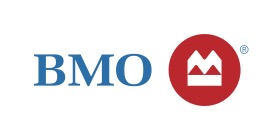The Entrepreneur Economy: 5 Trends for 2022

The pandemic has forced entrepreneurs to adapt to change faster than ever. Whether it’s pivoting your businesses’ product offerings to meet consumer demands, figuring out how the latest COVID-19 restrictions affect you or developing an online and social media presence to reach your audience—there’s an endless to-do list when it comes to running a small business.
With all these changes to entrepreneurship, it’s clear that some of them are here to stay, especially those that benefit both employees and consumers. Take online shopping, for example. Businesses that prioritize e-commerce are able to reach more people and drive sales; in turn, customers enjoy the convenience of shopping at home and seeing purchases arrive at their door.
“These past few months have shown us just how critical technology is to our everyday lives and as consumers, we rely on digital for our basic day-to-day needs from grocery shopping to an appointment with your family doctor,” says Mike Bonner, Head of Canadian Business Banking at BMO. “It’s no longer about simply opening your doors. It’s about reinventing how to engage those consumers and accelerating digital efforts—imperatives that are as relevant to BMO as they are to our customers.”
Below, we look at five trends that have emerged during the pandemic and are expected to continue shaping the future of entrepreneurship.
E-commerce is here to stay
Lockdowns forced the majority of Canadians to embrace online shopping, whether it was for groceries, gifts, sweatpants or their favourite restaurant meal. The ease of purchasing goods online, not to mention the convenience of having them delivered right to your front door, has convinced many entrepreneurs to build simple e-commerce websites, allowing for even the most niche businesses to expand their clientele.
Cashless payments are key
Cash transactions are simple, direct, and old-fashioned, but consumers have come to expect the ease and convenience of contactless payments both in-store and online. Keeping up with payment trends, including the growing popularity of mobile wallets, will ensure customer satisfaction.
Smart digital UX
Part of ensuring a seamless e-commerce platform is having a digital user experience that allows for truly personalized shopping. Collecting customer data can help businesses better understand their consumers while providing a customized and memorable online shopping experience.
Eco-friendly is more than a buzzword
The connections between consumerism and climate change are undeniable, which is why a company’s environmental impact can make or break a sale. Ensuring that your business practices, products and packaging are sustainable and environmentally minded is more important than ever. Consider that consumers are more conscious of their purchasing habits as they shift their awareness to the impact of their decisions on the environment. Shoppers, particularly millennials, are turning to upcycling and thrifting in their homes and closets not only because this lifestyle benefits their wallets, but because of the benefits to waste reduction.
Prioritizing wellness
The pandemic has held up a magnifying glass to health and safety practices at businesses, especially restaurants and retailers; however, hygiene is just part of the equation. Consumers and prospective employees alike care about whether a company prioritizes employee wellness, which includes mental health and working conditions.
How BMO can help
BMO offers a suite of products and services to help entrepreneurs get ahead and stay ahead, from personalized banking advice to instant loan approvals to take the guesswork out of the application process. Plus, there are no fees or minimum balance requirements to get started and new clients get access to discounted perks. Banking with BMO can help your business make real financial progress. Learn more or get started with BMO today.
